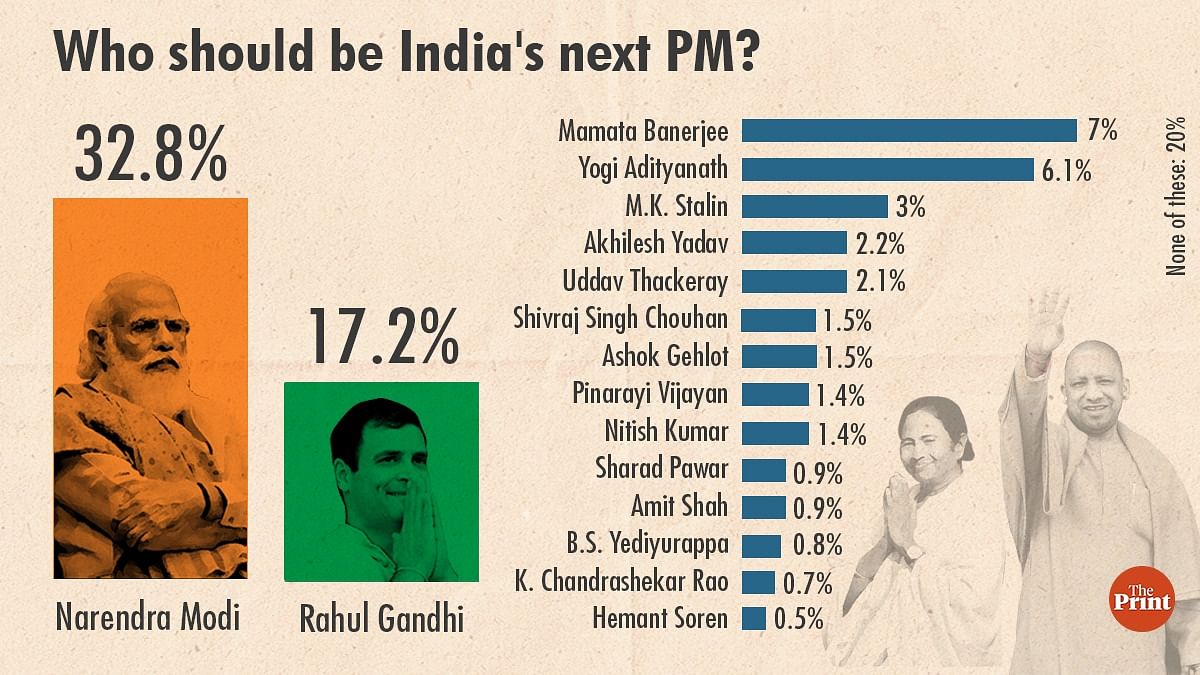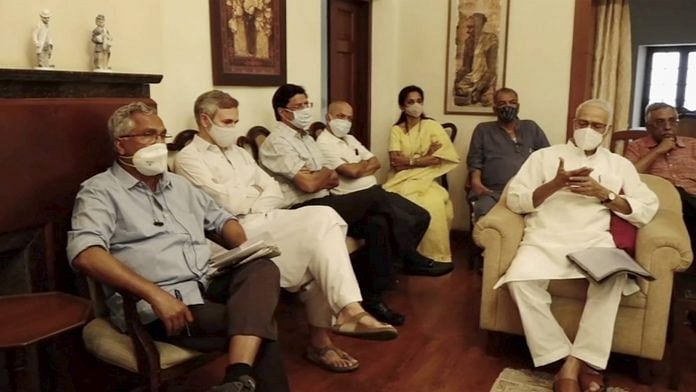Delhi media is abuzz with news that a possible third front, comprising non-BJP and non-Congress political parties, is forming up — ostensibly to take on the Bharatiya Janata Party and Prime Minister Narendra Modi. This is not the first time that there is such an attempt, nor will it be the last.
This time, Nationalist Congress Party president Sharad Pawar from Maharashtra is apparently at the forefront of convening such an alliance, aided and abetted by Yashwant Sinha of the Trinamool Congress. Buoyed by the crushing defeat of the BJP and the wipeout of the Congress party in the recent Bengal assembly election, it is understandable that talks of a non-Congress alliance to take on the BJP nationally has gained momentum.
To put things in context, of the 543 Lok Sabha seats, less than a third have a strict BJP vs Congress face-off. India is the most electorally diverse democracy in the world with at least 18 political parties having a strong presence in at least one state. In that sense, India does not really have a ‘national’ election but a series of state elections held simultaneously.
At the same time, it is now evident that elections in India have turned far more leader-centric. Narendra Modi has shown that despite India’s huge political diversity, it is possible for one ‘national’ leader to emerge across the length and breadth of the nation. There is also the oft-repeated maxim of the Delhi media that Indian elections have turned ‘presidential’, though one could argue that it is not as new a phenomenon as it is made out to be.
Also read: Modi, state government, destiny. Survey asked Indians who they blame for Covid deaths
Choosing India’s next PM
Any discussion on the future of Indian politics today swerves to a discussion on ‘If not Modi, who?’. It is amidst this backdrop that there are attempts to form a third front under a recognised leader to potentially challenge the popularity of the Prime Minister. Some sections of India’s ‘national’ media (Delhi media) and the chattering class are active in propagating the idea of a powerful leader of a regional party being named as the opposition’s prime ministerial candidate to challenge Narendra Modi.
Do the people of India feel similarly? Can a regional leader cut across state boundaries and be an acceptable alternative as the next prime ministerial candidate? Prashnam decided to find out.
Prashnam did a large national survey of nearly 20,000 adult voters across 12 large states – Uttar Pradesh, Maharashtra, West Bengal, Bihar, Tamil Nadu, Madhya Pradesh, Karnataka, Gujarat, Rajasthan, Kerala, Telangana, and Jharkhand — covering 397 Lok Sabha constituencies and 2,309 assembly constituencies.
People were asked a simple question in their local language – ‘Who do you think should be the next Prime Minister of India?’
The survey was designed in a manner that the choice of responses was open and wide. Respondents could name any state or national leader as their choice. This survey is among the largest and most geographically stratified surveys of this kind in recent times.
Also read: Vaccine shortages don’t translate into absolute demand in India. See this survey
Modi is numero uno; Rahul Gandhi most preferred alternative

PM Modi emerges as the most popular choice – nearly 33 per cent of the respondents chose him as their next prime minister.
Rahul Gandhi was the second most popular choice – 17 per cent of the respondents chose the Congress leader as India’s next PM.
An interesting finding was that all the non-Congress, non-BJP leaders combined did not poll as much as even the runner-up, Rahul Gandhi.
Expectedly, West Bengal Chief Minister Mamata Banerjee was the most popular regional leader as the choice for the next prime minister but only among 7 per cent respondents. Tamil Nadu Chief Minister M.K. Stalin came in next among regional leaders with 3 per cent support, Samajwadi Party president Akhilesh Yadav with 2.2 per cent and Bihar Chief Minister Nitish Kumar with 1.4 per cent.
The convenor of the third front, Sharad Pawar, was low among the choices for the next PM, with less than 1 per cent support. In some states such as Tamil Nadu and Kerala, Gandhi is the more preferred choice over Modi to be India’s next prime minister. Prashnam will make this survey a quarterly feature to measure how these preferences change over time.
Also read: One thing people want Modi govt to do right away, six-state survey gives us the mood
The picture is clear
Prashnam’s first question offered a choice between Narendra Modi, Rahul Gandhi, respective state CM and Other. For those who chose ‘Other’, a follow-up question was asked with four additional names: Mamata Banerjee, Sharad Pawar, Yogi Adityanath, and Akhilesh Yadav. The responses were then weighted by state population to arrive at the overall numbers. Details are provided in the individual worksheets of the raw data.
Admittedly, this is not a reflection of the voting intent of Indians in a national election. It is merely an opinion of Indian voters at this point in time on their choice for the next prime minister, which could well be at odds with how they may eventually vote in the 2024 Lok Sabha election.
Nonetheless, this presents a clear picture that for the majority of the Indian voters, Narendra Modi is still the tallest leader in the country and Rahul Gandhi is the most preferred alternative to him. No other political leader even comes close to them in being the choice for the next Prime Minister of India.
Keeping with Prashnam’s intellectually honest practice, the detailed methodology, state-wise results and the entire raw data for the survey are made available here for verification and further analysis.
Rajesh Jain is founder, Prashnam, an AI technology start-up that aims to make opinion gathering more scientific, easy, fast, and affordable. Views are personal.
The article is part of ThePrint-Prashnam Vox Pop series.
(Edited by Prashant Dixit)



